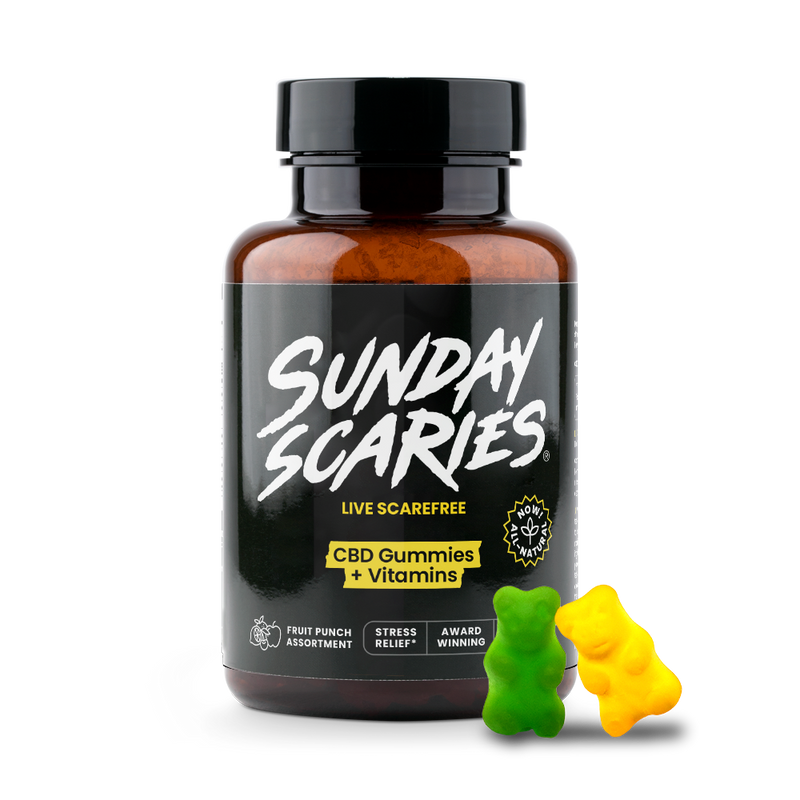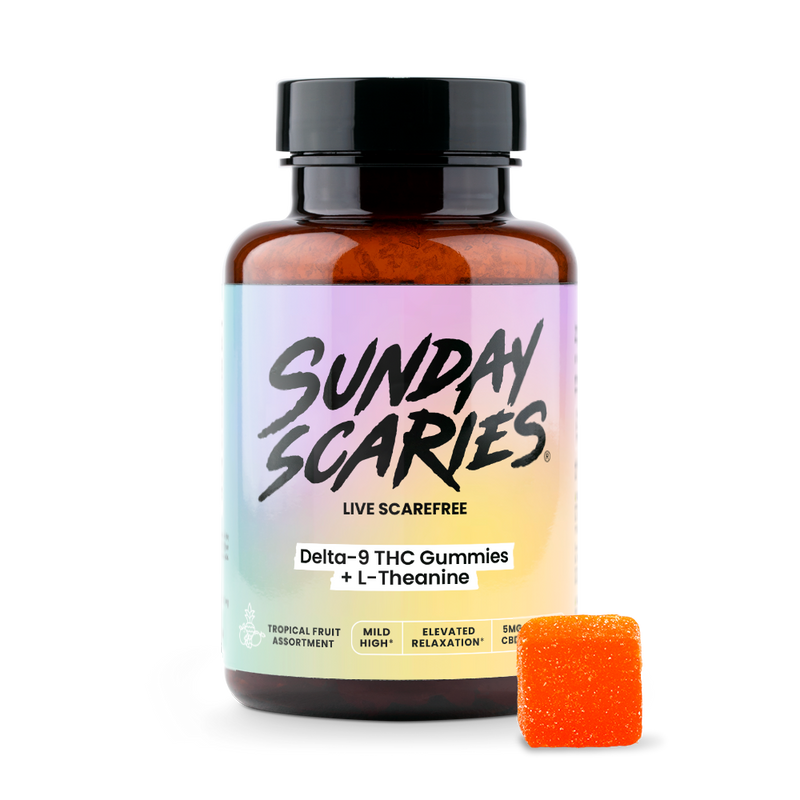
Does CBD Make You Hungry?

CBD does not typically make you hungry; instead, it may help regulate appetite by reducing stress and improving digestive health. Individual responses vary, so its effects on hunger can differ from person to person.
Unlike THC, which stimulates appetite, CBD usually does not increase hunger. This article explores CBD’s effects on appetite and what the latest research reveals.
Key Takeaways
- CBD does not directly stimulate appetite like THC and interacts differently with the endocannabinoid system, making it less likely to make you hungry.
- Individual responses to CBD can vary significantly, with some users experiencing increased appetite, while others may see appetite suppression or no effect at all, underscoring the need for more research.
- CBD is being studied in weight management for promoting fat browning, reducing food intake, improving metabolism, and enhancing insulin sensitivity, potentially offering a viable aid for those seeking weight loss.
Understanding CBD
Cannabidiol, or CBD, belongs to a group of over 100 chemical compounds called cannabinoids that are derived from the cannabis plant.
In contrast to its relative THC, CBD doesn’t trigger psychoactive effects and is deemed non-intoxicating. This means that while THC can cause a ‘high,’ CBD offers therapeutic benefits without altering your mental state.
Extracted from the cannabis plant, CBD is diluted with carrier oils like coconut or hemp seed oil to create various products. These products are widely used in the wellness industry for their potential health benefits.
-
For more information, check out our resource: What Is CBD?
The Endocannabinoid System and Appetite Regulation
To answer the question "does CBD make you hungry?" it's essential to explore the endocannabinoid system (ECS). The ECS is a complex cell-signaling system that plays a crucial role in regulating various physiological processes.
The endocannabinoid system (ECS) is crucial in preserving equilibrium in numerous physiological processes, such as:
-
Pain perception
-
Mood regulation
-
Sleep
-
Immune responses
-
Inflammation
-
Appetite regulation
Cannabinoids derived from the cannabis plant interact with the ECS to influence these human body processes, and ongoing cannabinoid research helps us understand these interactions better. The ECS consists of CB1 and CB2 receptors, which are integral to metabolism and food intake.
THC stimulates the CB1 receptor, releasing a hormone that increases food intake, thus causing the ‘munchies’. So, THC can indirectly lead to weight gain.
CBD, however, interacts with the ECS differently. It does not stimulate the CB1 receptor in the same way, which means it does not cause the same appetite stimulation as THC.
Instead, CBD’s effects on appetite are unique to each individual and may influence appetite regulation through its interaction with the ECS.
This interaction aids in preserving the body’s equilibrium without necessarily triggering hunger, showcasing CBD’s versatility and multitude of potential applications. It is still being studied on whether or not it can help users lose weight, but there are some positive signals.
Does CBD Increase Appetite?
Although THC is infamous for provoking hunger, CBD’s potential to do the same remains less conclusive.
Scientific research presents conflicting views on whether CBD makes you hungry.
Current studies suggest that CBD does not directly stimulate appetite. THC affects the receptors in the brain that make you feel hungry, whereas CBD does not have the same effect.
However, some individuals have reported increased appetite as a side effect of CBD use. This indicates that CBD’s impact on hunger can vary significantly from person to person.
CBD might influence appetite in a more indirect manner. For example, by alleviating conditions that cause appetite loss, such as stress, CBD could potentially act as a weight loss supplement.
However, human research on CBD’s effects on appetite and weight loss remains limited and inconsistent. This inconsistency emphasizes the necessity for more in-depth research to comprehend CBD’s impact on hunger and overall food consumption.
Research Insights: CBD and Appetite Stimulation
A recent study in the National Library of Medicine called Effects of Cannabidiol on Appetite and Body Weight: A Systematic Review stated that "A total of 11 trials were included in this review. Of these, the majority reported on cannabidiol reducing appetite and/or body weight whilst some have found no significant changes and one trial described an increase in appetite."
The study found that a small percentage of participants experienced increased hunger as a side effect of CBD use. Although this percentage is relatively small, it highlights that CBD can have appetite-stimulating effects in a subset of users.
These results imply that although CBD doesn’t universally stimulate appetite, it can induce hunger in some individuals, although rare.
Does CBD Decrease or Suppress Appetite?
Contrarily, although CBD doesn’t typically stimulate appetite, some evidence points to its potential to suppress it.
Unlike THC, which can stimulate hunger and spark the "munchies", CBD usually leads to lower food consumption. Many proponents believe that CBD can help with weight loss by reducing appetite, although researches need to conduct more human trials on this.
Preliminary research indicates that CBD may reduce food intake and boost metabolism, potentially aiding those looking to manage their weight.
This research is being conducted to uncover whether or not CBD can suppress appetite so it may benefit individuals struggling with diabetes, obesity or other eating disorders. Cannabinoid research needs to be less bastardized so we can get the most out of cannabis.
By lowering food intake, CBD could potentially help reduce the risk of overeating and support healthier eating habits.
This potential makes CBD an appealing option for weight management and overall wellness.
CBD and Metabolism
When answering "does CBD make you hungry?", it's important to address how it affects metabolism. Metabolism plays a crucial role in how the body uses and stores energy from food. Some studies suggest that CBD might influence metabolism and, consequently, aid weight loss.
A study published in the National Library of Medicine called Molecular and Cellular Mechanisms of Action of Cannabidiol found that CBD increased the activity of mitochondria, the energy-producing structures in cells.
This suggests that CBD could enhance the body’s ability to burn calories, which might indirectly affect hunger and weight.
Additionally, CBD has been shown to interact with fat cells. A study published in the National Library of Medicine called Cannabis sativa as a Treatment for Obesity: From Anti-Inflammatory Indirect Support to a Promising Metabolic Re-Establishment Target discovered that CBD stimulated the process of “browning” in white fat cells.
Brown fat cells are more metabolically active than white fat cells and burn calories to generate heat. By promoting the burning of brown fat cells, CBD might contribute to weight management, which could influence appetite regulation.
CBD and Digestive Health
When answering "does CBD make you hungry?", it's important to discuss digestion. Digestive health is closely linked to appetite. Conditions such as irritable bowel syndrome (IBS), Crohn’s disease, and other gastrointestinal disorders can significantly impact appetite and eating patterns.
CBD is being studied for its management with symptoms of digestive disorders. A study published in PLOS ONE called Cannabidiol Reduces Intestinal Inflammation through the Control of Neuroimmune Axis investigated the effects of CBD on intestinal inflammation in mice with colitis.
The researchers found that CBD reduced inflammation and improved intestinal function. By alleviating gastrointestinal symptoms, CBD could potentially help improve appetite in humans with digestive disorders, although more research needs to be conducted.
Furthermore, CBD’s potential anti-inflammatory properties might play a role in managing gut health.
Chronic inflammation in the gut can disrupt normal digestive processes and appetite regulation. By potentially reducing inflammation, CBD could promote a healthier digestive system, which might positively influence appetite.
Can CBD Help with Weight Management?
CBD is gaining recognition for its potential contribution to weight management. One of the ways CBD may assist in weight management is through the process of fat browning. Studies have shown that cannabidiol promotes browning, converting white fat cells, which store energy, into brown fat cells, which burn energy.
This conversion makes brown fat cells more metabolically active, potentially aiding in weight loss.
In addition to promoting fat browning, CBD is being studied on whether it can improve glucose absorption and insulin sensitivity, crucial for metabolic health.
Improved mitochondrial function, which is vital for energy production and metabolism, has also been observed with CBD use.
These metabolic effects suggest that CBD could potentially be a valuable tool in weight management, helping to support a healthier, more balanced body weight.
CBD Products and Appetite: What Users Report
While scientific studies provide valuable insights, when answering "does CBD make you hungry?" anecdotal evidence from CBD users also sheds light. Many users report varying effects on their appetite, which can depend on factors such as dosage, individual metabolism, and the specific CBD product used.
Increased Appetite
Some users report an increase in appetite after using CBD, particularly when using full-spectrum CBD products that contain trace amounts of THC.
THC is known to stimulate appetite, a phenomenon often referred to as the “munchies.” Even the small amounts of THC in full-spectrum products might contribute to increased hunger in some individuals.
Decreased Appetite
On the other hand, some users experience a decrease in appetite when using CBD. This effect is often attributed to CBD’s potential to reduce anxiety and stress, which are common triggers for overeating.
By promoting a sense of calm and relaxation, CBD might help individuals manage their cravings and eat more mindfully.
No Significant Change
Many users report no significant change in their appetite after using CBD. This variability in responses highlights the complex and individualized nature of CBD’s effects on hunger.
Factors Influencing CBD’s Effect on Appetite
Several factors can influence how CBD affects appetite:
1. Dosage: The amount of CBD consumed can play a significant role. Low doses of CBD might have different effects compared to high doses. Some users indicate that low doses of CBD (20mg or less) might stimulate alertness and focus, while higher doses (30mg or more) could promote relaxation and calmness. This is important when answering "does CBD make you hungry?", considering when a person is more alert and focused they are burning more calories.
-
For more information, check out our resource: Does CBD Make You Tired?
2. Type of CBD Product: The type of CBD product used (e.g., full-spectrum, broad-spectrum, or isolate) can also impact appetite. Full-spectrum products contain a range of cannabinoids, including THC, which might influence hunger by sparking the "munchies". CBD isolates, on the other hand, contain only CBD and no other cannabinoids.
3. Individual Metabolism: Each person’s metabolism is unique, and this can affect how CBD is processed in the body. Factors such as age, weight, and overall health can influence how CBD interacts with the endocannabinoid system and, consequently, appetite.
4. Underlying Health Conditions: The presence of underlying health conditions can also impact how CBD affects appetite. For example, individuals with anxiety or digestive disorders might experience different effects compared to those using CBD for general wellness.
Full Spectrum CBD vs. Other CBD Products
Three primary forms of CBD products are available:
-
Full spectrum CBD: Contains all cannabinoids and other plant compounds, including THC, which can contribute to the ‘entourage effect’—the combined therapeutic effect of all the plant’s compounds.
-
Broad spectrum CBD: Contains all cannabinoids and other plant compounds, except for THC. It offers the potential benefits of the entourage effect without the psychoactive effects of THC.
-
CBD isolate: Contains only pure CBD, with no other cannabinoids or plant compounds. It provides the purest form of CBD.
Each type offers unique benefits and potential effects on appetite increase, while some may even help reduce appetite.
CBD isolate is most likely to reduce appetite since it is pure CBD, while Full spectrum is most likely to increase appetite since it contains trace amounts of THC, which can make you hungry.
-
To find your perfect CBD type, check out our resource: Full Spectrum vs Broad Spectrum vs Isolate
Potential Benefits and Side Effects of CBD on Appetite
The influence of CBD on appetite can yield multiple potential benefits. For some, CBD may foster a healthier relationship with food, contributing to an overall sense of well-being.
By alleviating conditions like stress and body aches that can affect appetite, CBD might help users maintain a balanced diet and improve their quality of life.
Nevertheless, like any supplement, CBD might also induce side effects correlated with appetite.
Common side effects of CBD include:
-
Dry mouth
-
Diarrhea
-
Reduced appetite
-
Sedative effects
-
Irritability
-
Agitation
-
Changes in alertness
-
Nausea
While these side effects are generally mild and well-tolerated, individuals should be aware of them when considering CBD for appetite regulation.
CBD Gummies and Appetite
CBD gummies, often with slight amounts of THC, are a favored method of CBD intake.
Despite their THC content, CBD gummies are not typically associated with appetite stimulation. Instead, they are valued for their convenience, taste, and potential health benefits.
As foods and beverages containing CBD continue to gain popularity, CBD gummies are predicted to become a favored option for their therapeutic effects rather than their impact on appetite.
While some might worry that CBD gummies could make you hungry, the reality is that their effects on appetite are minimal.
Most users consume CBD gummies for their calming and sleep-aiding properties rather than for appetite stimulation.
This makes them a versatile and enjoyable way to incorporate CBD into one’s daily routine without the concern of increased hunger.
Practical Tips for Using CBD
If you’re planning to incorporate CBD into your wellness regimen, there are several crucial tips to ensure its safe and effective use.
It is advisable to start with a low dose of CBD and gradually increase it to see how your body reacts.
This approach helps in avoiding any potential side effects and allows you to find the optimal dosage for your needs.
Given the variability in the purity and dosage of CBD edibles, it is crucial to purchase from reputable sources to ensure you are getting what is labeled.
Before starting CBD, consult a healthcare professional, especially if you have liver issues or are taking other medications.
Different forms of CBD, such as oils, capsules, and vaping products, have varying onset times and durations of effect.
For instance, CBD oils taken under the tongue can be absorbed quickly through the oral mucosa, while capsules may take longer to show effects. Understanding these differences can help you select the most suitable product for your needs.
Summary
In summary, CBD and its impact on appetite present a complex and multi-faceted topic. While CBD does not typically increase appetite like THC, it can have varying effects on different individuals.
Some may feel hungry, while others might find it helps reduce appetite. In some cases, CBD reduced appetite by alleviating stress and improving digestive health.
The potential benefits of CBD, from stress relief to weight management, are vast, but more research is needed to fully understand its impact on appetite.
As always, it is important to consult with healthcare professionals and choose high-quality CBD products to ensure safe and effective use.
Explore CBD responsibly and discover how it can fit into your wellness journey.
Frequently Asked Questions
Does CBD make you hungry?
While scientific evidence suggests that CBD does not directly stimulate appetite, some individuals may experience increased hunger as a side effect. Individual responses to CBD can vary.
Can CBD help with weight loss?
CBD may help with weight loss by reducing appetite, promoting fat browning, decreasing stress and improving metabolic health. While these properties could potentially aid weight loss, more researchers need to study the subject.
What is the difference between full spectrum CBD and CBD isolate?
The main difference between full spectrum CBD and CBD isolate is that full spectrum contains all cannabinoids and plant compounds, including THC, while CBD isolate is a pure form of CBD without other cannabis compounds.
Are there any side effects of using CBD for appetite regulation?
Yes, some common side effects of using CBD for appetite regulation include reduced appetite, dry mouth, diarrhea, and occasional nausea. Be mindful of these potential effects and until more studies are produced, do not rely on CBD to lose weight.
How should I start using CBD?
You should start using CBD by beginning with a low dose and slowly increasing it over time. It is essential to consult a healthcare professional first, particularly if you have liver issues or are taking other medications.
Can THC make you hungry?
Yes, THC, found in cannabis plants (both hemp and marijuana) and manufactured in the form of THC Gummies and Delta 9 Gummies, often stimulates appetite, a phenomenon known as the "munchies."
Do other cannabinoids make you hungry?
Other cannabinoids, such as CBG and CBN, may influence appetite, but their effects are less pronounced compared to THC, with some potentially increasing hunger and others having little to no impact.

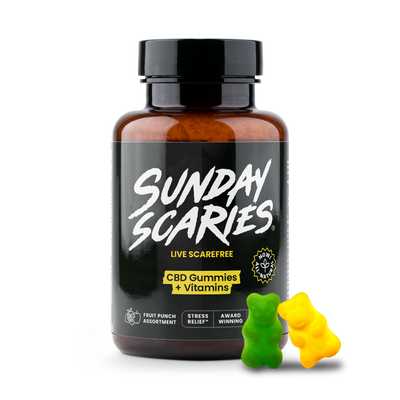 CBD Gummies
Stress Relief
CBD Gummies
Stress Relief
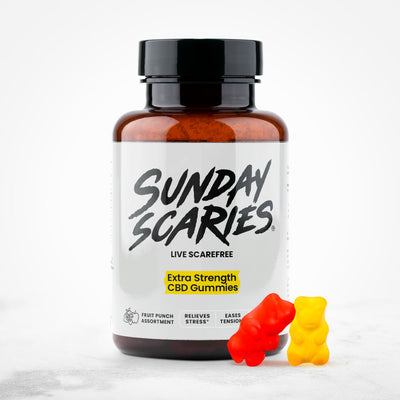 Extra Strength CBD Gummies
Stress Relief
Extra Strength CBD Gummies
Stress Relief
 Vegan CBD Gummies
Stress Relief
Vegan CBD Gummies
Stress Relief
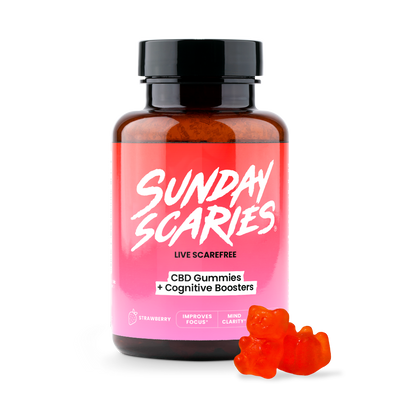 CBD Gummies for Focus
Focus Boost
CBD Gummies for Focus
Focus Boost
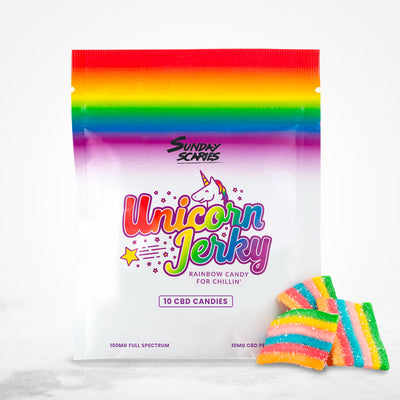 CBD Candy
Mood Lift
CBD Candy
Mood Lift
 CBD Daytime Oil
Stress Relief
CBD Daytime Oil
Stress Relief
 CBD Sleep Oil
Sleep Aid
CBD Sleep Oil
Sleep Aid
 CBD Dog Treats
Stress Relief
CBD Dog Treats
Stress Relief
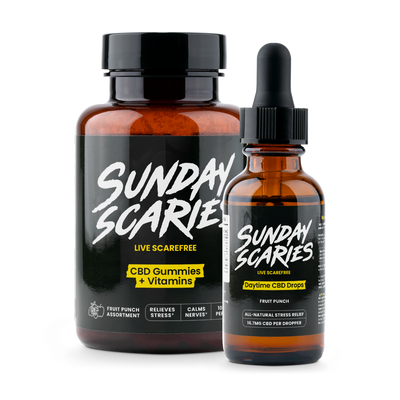 Side Piece Bundle
Stress Relief
Side Piece Bundle
Stress Relief
 Rando Bundle
Stress Relief
Rando Bundle
Stress Relief
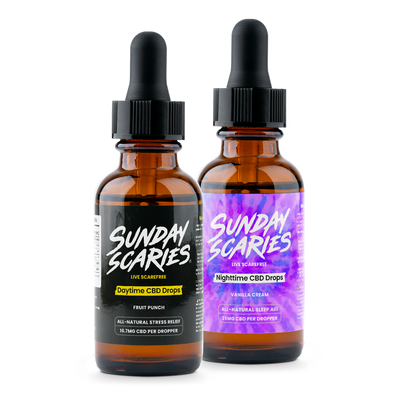 Sunrise & Sunset CBD Oil Bundle
Stress Relief
Sunrise & Sunset CBD Oil Bundle
Stress Relief
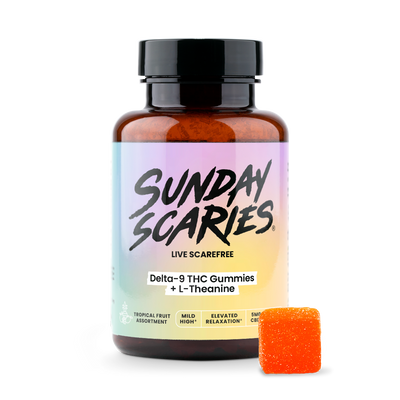 5mg Delta-9 Gummies
Euphoria
5mg Delta-9 Gummies
Euphoria
 10mg Delta-9 Gummies
Euphoria
10mg Delta-9 Gummies
Euphoria
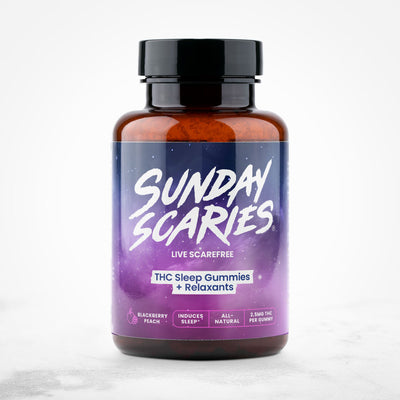 THC Gummies for Sleep
Sleep Aid
THC Gummies for Sleep
Sleep Aid
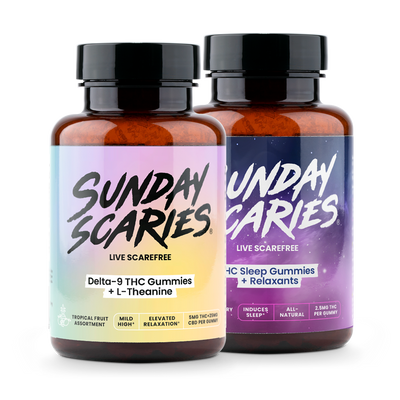 Day & Night THC Gummies Bundle
Stress Relief
Day & Night THC Gummies Bundle
Stress Relief
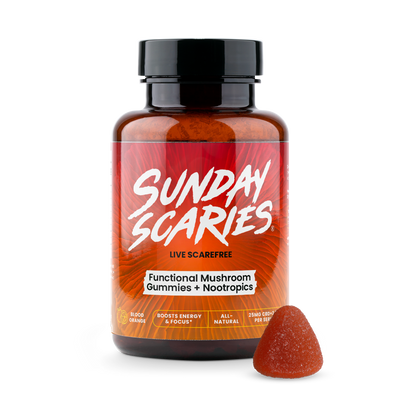 Mushroom Gummies
Focus Boost
Mushroom Gummies
Focus Boost
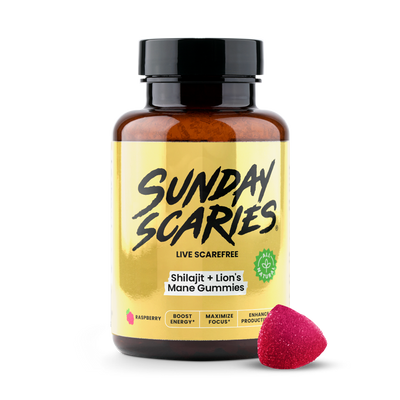 Shilajit Gummies
Focus Boost
Shilajit Gummies
Focus Boost
 Sunday Scaries Hat
Sunday Scaries Hat
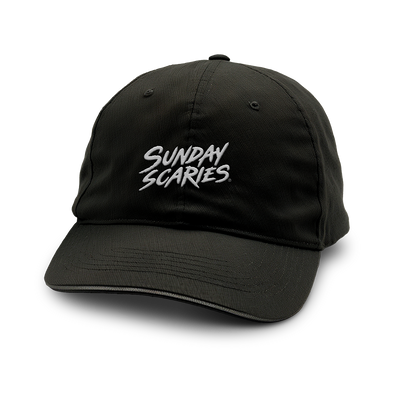 Sunday Scaries Dad Hat
Sunday Scaries Dad Hat
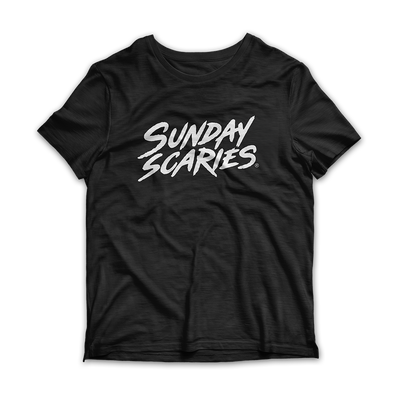 Sunday Scaries T-Shirt
Sunday Scaries T-Shirt
 Sunday Scaries Pocket Tee
Sunday Scaries Pocket Tee
 Sunday Scaries Tank Top
Sunday Scaries Tank Top
 Sunday Scaries Sweatshirt
Sunday Scaries Sweatshirt
 Sunday Scaries Blanket Jacket
Sunday Scaries Blanket Jacket
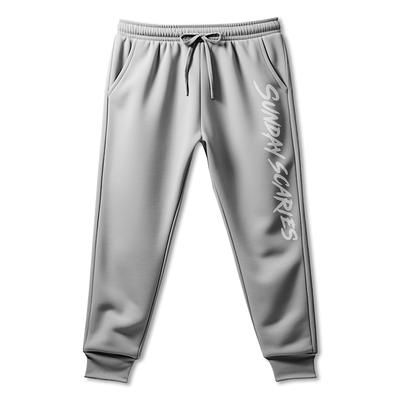 Sunday Scaries Sweatpants
Sunday Scaries Sweatpants

